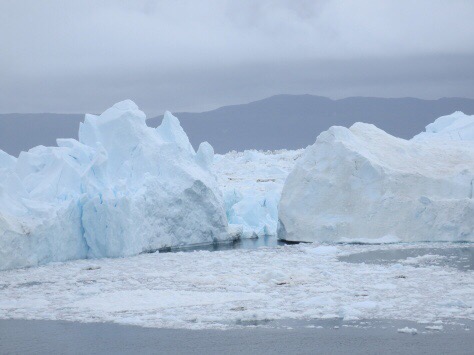Scientists and children’s broadcasters include Manchester have joined forces to ensure the important topic of climate change is brought to classrooms and living rooms around the country.
Manchester Metropolitan University, Liverpool John Moores University (LJMU), the Met Office and King’s College London have teamed up with Children’s Radio UK to produce a lasting legacy of climate change education.
The project, Climate Explorer, uses radio broadcasts and multimedia in a project funded by the NERC (Natural Environment Research Council) by creating a suite of engaging content for children (7-12 years), parents and educators.
Children from primary schools across the UK will benefit from the project which will introduce them to the key facts of climate change including: natural climate variability; recent changes; what may happen in the future; and how we can try to tackle it.
This will provide primary school children with scientifically rigorous knowledge about climate change which has previously been inaccessible. Fun Kids, the only UK-wide radio station for children, will broadcast the educational shows and accompanying online videos.The engaging multimedia formats will be freely available for repeated viewing within the classroom and at home.
This national initiative runs as one of 18 NERC-backed projects to engage the UK public with major environmental science around challenging issues. Starting in January 2017, the projects will build collaboration between researchers and public groups working together on key issues including pollution, green infrastructure, water quality, energy, carbon capture, climate change, ocean acidification, flooding, invasive species, rewilding and pollinators.
Dr Kathryn Adamson, Senior Lecturer in Physical Geography at Manchester Metropolitan University, said: “One of the best ways to engage children with learning is through entertainment. Our team has been specially designed to bring together scientists, teaching and learning specialists, and children’s entertainment developers. Our goal is to make accessible, factually sound resources on climate science that is above all fun for primary school children.
“My research examines the impacts of climate change on glaciers and rivers. Much of my work focuses on the Arctic where climate change is having major impacts, not only on glaciers but on sea ice, plants, and animal species too. Seeing these changes first hand has given me a real drive to educate and encourage others to take action on climate change.”
Dr Tim Lane, Lecturer in Physical Geography at Liverpool John Moores University and project lead, said: “There needs to be more attention given to primary school children about the importance and likely impacts of climate change. This is a critical learning age, when fundamental scientific principles become embedded in a child’s understanding of the world. Most children have a basic knowledge of weather, through their day-to-day experiences, but they do not have a firm grasp of climate. By the time the current oldest primary school children are 21, there is a 50% chance that we will have exceeded our current targets of 1.5°C warming.
“My research has focused on understanding how environments have changed in the past, with a focus on the Arctic. These regions are particularly sensitive to climate change and seeing these environments helped me understand what a pressing matter climate change is. The project is a designed as a collaboration of academics, public engagement experts, and radio producers. Because of this, it affords a unique opportunity to provide high-quality, engaging educational content on a vitally important subject which is not really taught at a primary school level.”







